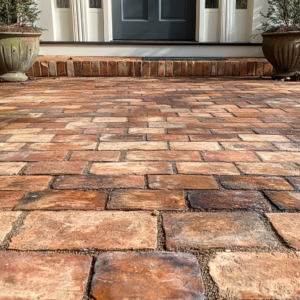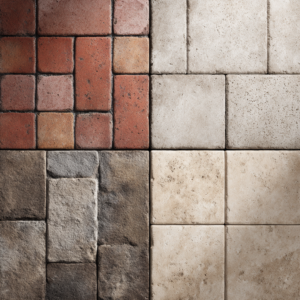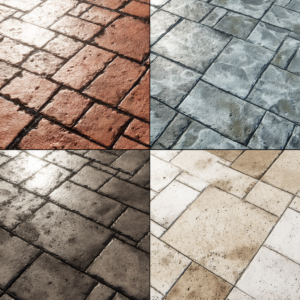Driveways are prone to get stained by oil and tire marks. Be it concrete, brick, porcelain, or travertine, vehicle traffic will affect the look of your floor one way or another, mostly because of spillages and dirt tracks. How to remove transmission fluid from pavers, then? Is it possible?
Well, yes! Keep reading to find out how to do that the right way. However, if you’re looking for a general, in-depth guide on paver cleaning, check out this other article.
Jump to:
How to remove transmission fluid from pavers
Transmission fluid is the lubricant formulated to protect your vehicle’s gears and clutches, enabling smooth turns while driving. It’s a common occurrence for cars to spill this oily liquid from the bottom while parked.
And if your driveway is made of pavers, well – that means we should take precautions to spare ourselves from a permanent dark stain. Fortunately, there are some homemade solutions to this problem – in this article, we’ll give you the main 3.
To do this, wear some protective gear first; then choose the product that best suits you, following the steps below:
- WD-40: This spray can be used for many automotive purposes, including oil removal. For that, spray a generous amount at the designated spot and hose it down with warm water until it fades away.
- Soda: Here, you’ll have to gather up some cat litter, a stiff bristle broom, a bucket, laundry detergent, and bleach, as well as the soda itself (preferably Coke or Dr. Pepper). Be extremely careful with your eyes when doing this – rubber gloves can be very useful here. When you’re ready, cover the stain with a layer of litter and brush it in. Sweep it up and pour the cola on the spot, work the liquid in with the bristle broom, and let it sit for at least 20 minutes. Lastly, mix ¼ cup detergent with ¼ cup bleach in 1 gallon of warm water to mop it all up.
- Ammonia: This one may prove very effective because it also helps you get rid of heavy discoloration. To successfully apply it on the dark stain, you must scrub the pavers with 1 cup of ammonia diluted in 1 gallon of warm water, then hose down the solution once you’re done.
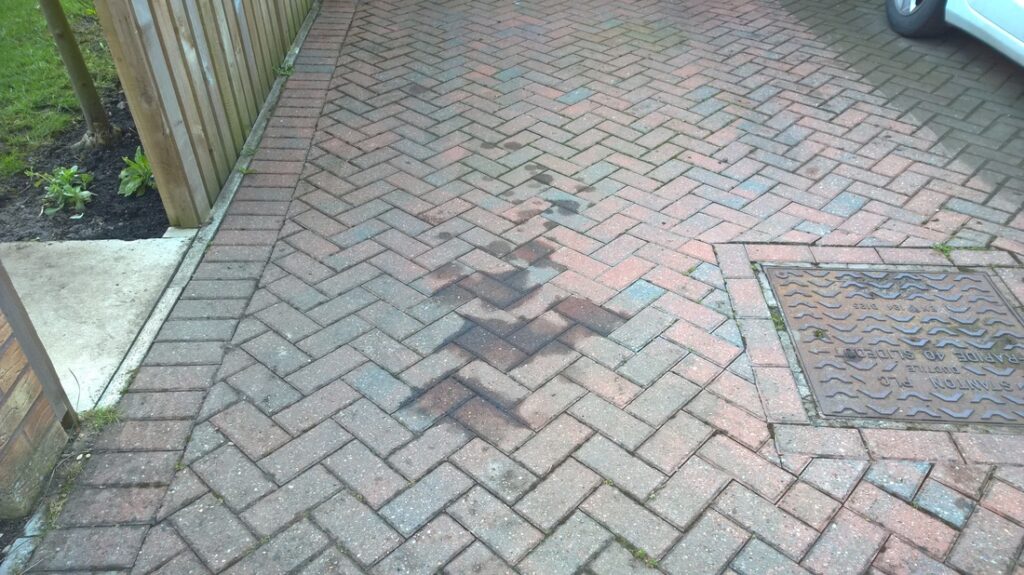
Keep in mind that if the marks don’t disappear after you’ve tried out these common, down-to-earth methods, you’ll have three options:
- purchase a generic, yet recommended stain remover for your pavers;
- buy new pavers, replacing the old ones with brand new units;
- get professional assistance.
Other than that, once you’ve handled this inconvenience, we recommend sealing your pavers right away – because that will help you deal with any kind of stain in the future without compromising the longevity of your whole structure.
But why sealing?
Sealing is the best way to protect your paving stones from stains and signs of aging and wear. It is not a must, but porous surfaces such as concrete and brick can outlast the house itself if sealed properly, given their natural durability.
Think about it this way: you want to make sure to protect your investment. Paver sealant is an important maintenance tool to keep paver patios, walkways, and driveways looking as beautiful as they were when you first installed them. This is due to the glossy, shiny appearance that this product leaves on the surface of stones.
But the long-lasting benefits of sealing pavers don’t stop just with aesthetics; this process also has a positive impact in many ways, such as:
- Inhibits weeds and grass in joints;
- Reduces moss growth;
- Prevents ants and other insects;
- Limits loss of sand in joints;
- Helps repel grease, grime, and stains;
- Offers an easier routine cleaning;
- Enhances color, texture, and brightness;
- Resists the effects of harsh weather conditions;
- Protects from salt damage;
- Reduces surface deterioration and wear;
- Reduces paver loosening and cracks.
Important tips for maintaining your pavers clean
Apart from knowing how to remove transmission fluid from pavers, caring for your project on a daily basis will pay off in the future. With due attention, you can save money, dodging unit replacements and even a sunken floor.
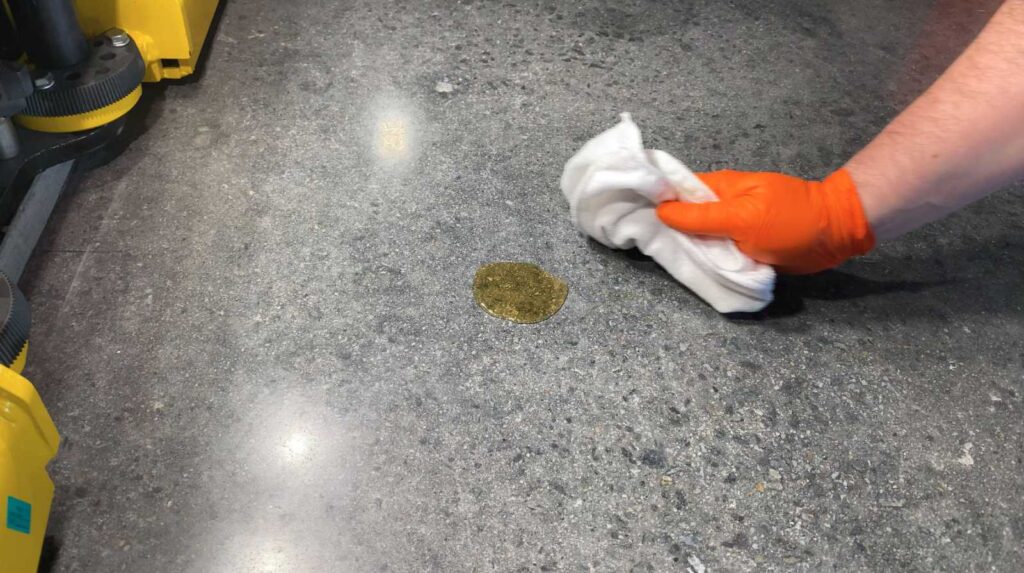
Therefore, you better check out the following tips for your next cleanup session.
- Sweep them regularly to avoid leaves falling onto your pavers and staining the surface;
- Use polymeric sand to avoid weed and moss growth in the gaps between them;
- If there are weeds that keep growing, use a vegetation killer to eliminate them;
- If your pavers have tough stains, you can and should use a cleaner made especially for pavers;
- Have a regular maintenance schedule with sealing, at least twice a year;
- Always check your car and other vehicles to avoid unwanted oil stains.
Call for professional help when cleaning your driveway!
If you don’t have time or can’t get rid of a stain by any means, you can always leave the aforementioned work of cleaning and sealing in the hands of professionals. They know exactly what to do and what your paving stones need – and if you are worried about the price, you can have a free estimate with us.
At JS Brick, we have 20+ years of experience providing paver installation, supply, and maintenance services in Sarasota and surrounding cities. Don’t hesitate to contract our hardscaping services – leave us a message or a call as soon as you can.

